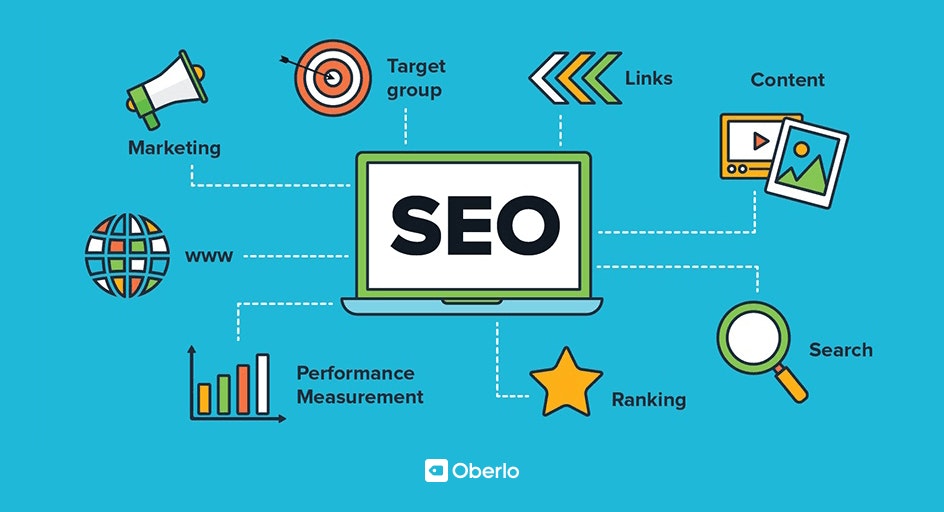
If you want to rank your website higher in Google searches, you can’t neglect or undervalue the importance of a good SEO strategy.
However, with so many aspects that need to be focused on when it comes to search engine optimization, how do you know the ones to prioritize in order to get the best results?
So, in this post, I’m going to share with you the top 5 priority SEO fixes that you should implement in 2021 to help you improve your ranking performance and get the results you want in less time.
Make sure your website is mobile optimized
There’s no doubt that we live in a mobile world.
Whether for work or pleasure, it is a foregone conclusion that the majority of the world’s population uses smartphones rather than laptops or tablets to get around.
As a result, it’s no wonder that when it comes to presenting search results, Google has adopted a mobile-first indexing principle. Mobile-first indexing is used to review more than 75% of all websites in Google’s index.
It won’t be long before Google’s search database is optimized for mobile devices.
What you need to do right now is make sure your website is mobile-friendly in design and code. To see if your website is mobile-friendly, use Google’s Mobile-Friendly Test tool.
It’s more than just getting a mobile friendly design or blueprint for your website when it comes to optimizing it for mobile. It’s about thinking about how a normal user might like to access details on your website when on the go.
Make your website loads fast
There was a time when slow-loading websites might still rank highly on Google, but those days are long gone.
Google has stated that page speed will be considered one of the ranking criteria in the future.
Aim for a website load time of 2.2 seconds or less to avoid being on Google’s bad side.
The server that your website is hosted on, as well as the level of onpage optimization performed on the site’s properties, such as javascripts and graphical elements, are also important factors in speed optimization.
Using tools like Google PageSpeed Insights or GTmetrix, you can examine your site’s speed output in depth and determine what needs to be improved.
Include rich snippets in your webpages
Rich snippets, also known as structured data, are bits of code that help Google better understand what the website is about.
And, once Google has figured out what the website is for, your page will have a greater chance of ranking higher in the search results.
Rich snippets are named for the fact that they boost the way your SERPs are displayed. Ratings and additional lines for FAQs are common examples of rich snippets that appear in your SERPs to make it more prominent.
The majority of websites either do not have rich snippets on their pages, or they do so incorrectly.
Be sure to include rich snippet code in your webpages to obtain an unfair advantage in the SEO process.
Publish high quality content
Google searches for content on your webpages to decide whether or not they should be ranked higher in search results.
It is not an exaggeration to claim that without content, your website will not be able to rank.
As a consequence, enhancing the consistency of the content published on your website is one of the most critical fixes you can make.
What I mean by high-quality content is how specific and important it is in addressing your target audience’s questions.
At the end of the day, Google’s goal is to have the most appropriate answers to the questions people ask when they use Google.
And if your website’s content is considered to be the most important and useful to searchers, Google will automatically favor your site and it will rank higher over time.
Content tuning is the key strategy for any website’s SEO operation, according to Stridec, a top SEO agency in Singapore. It has gotten great results for a lot of the sites on which they’ve worked, with pages often ranking in the top ten search positions simply by providing good content.
Optimize your titles and headings
The title and H1 heading tags are the two most significant elements on a website that have a direct effect on search engine results.
This isn’t something you can afford to be sluggish about. Spend the time and effort to go over all of your website’s title and H1 heading tags to ensure that they are properly optimized.
This implies that each one must be original and should not be replicated.
Your target keyword should appear in both the title tag and the H1 heading to further optimize your page. Also, if necessary, put the keyword as close to the start of the title or heading as possible.
It should go without saying that the titles and H1 headings must be fully appropriate and linked to the page’s content.
Clickbaiting visitors to the website only to discover that the content is entirely irrelevant to their search results produces a poor user experience and has a negative effect on your SEO.
Conclusion
When you know how many aspects there are to focus on with SEO, it can be intimidating.
However, not all things are created equal, and there are a small few that have a disproportionately significant effect on your search engine optimization activities, such as the five discussed in this article.
If you follow these steps correctly, you’ll be on your way to SEO success in no time.
